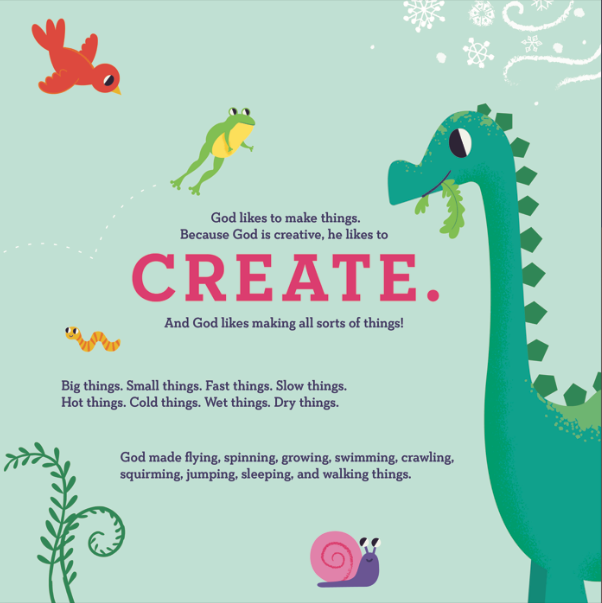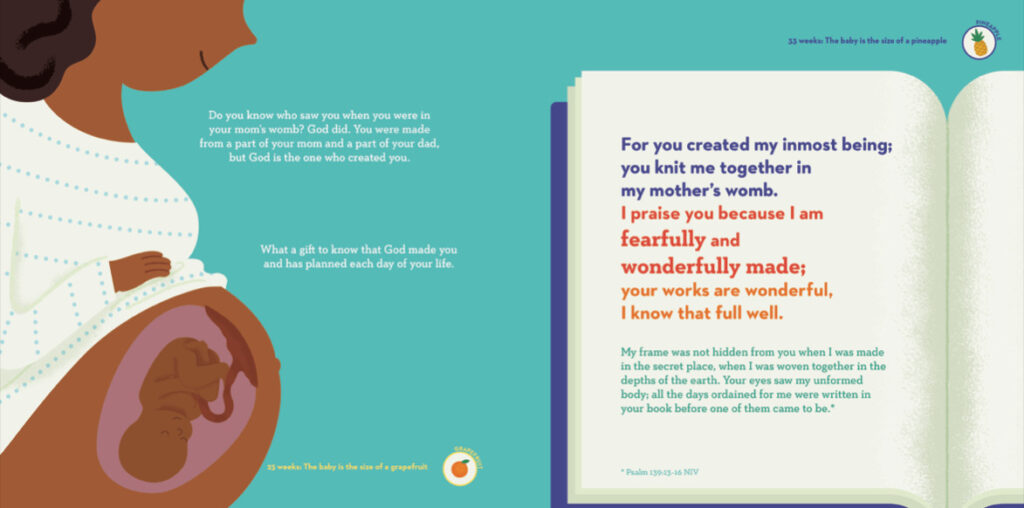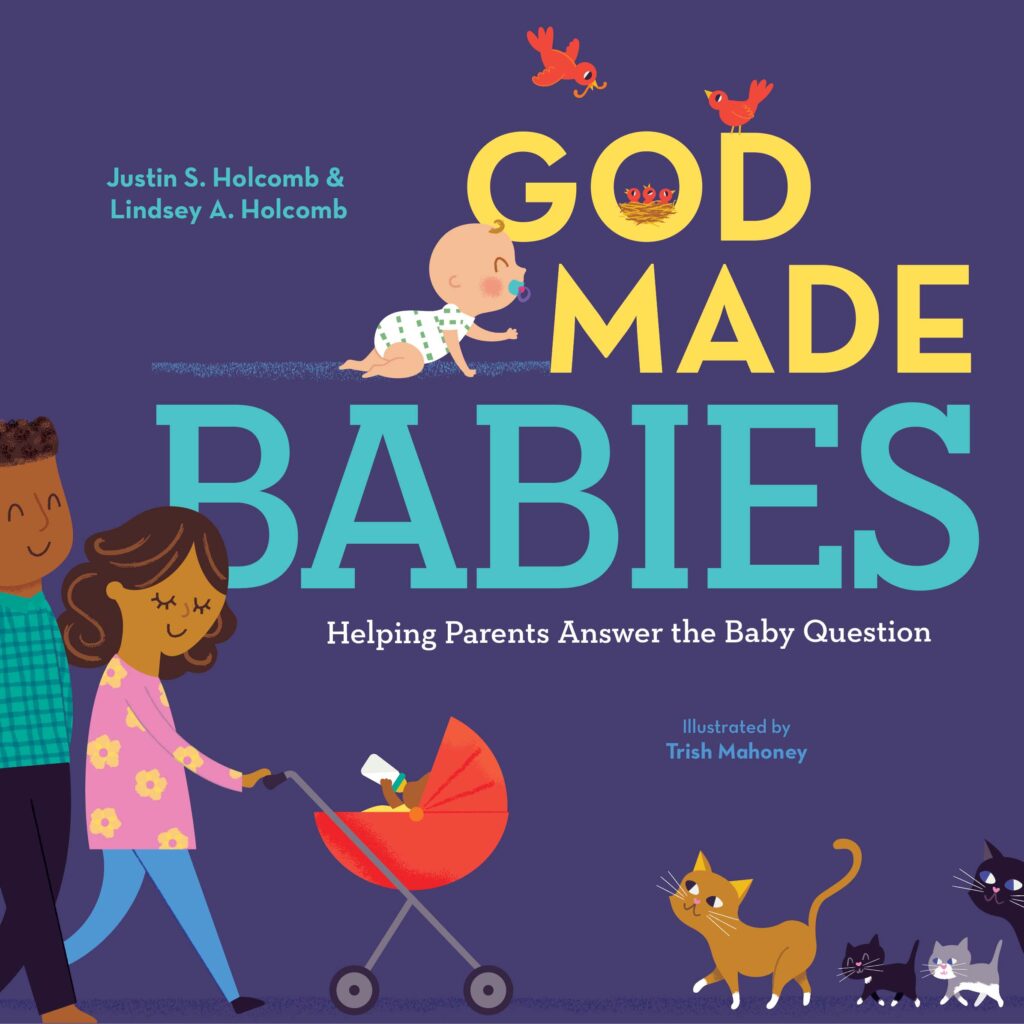“Where do babies come from?” At some point, you can count on being asked this question by your child. Preparing ahead of time can help make conversations more casual, more natural, and consequently, more effective.
Children ask: “Where do babies come from?” because they are curious. Their question is not about sex. They want to know where they came from before they were born. The question is a healthy and normal part of a child’s development. Many children around the age of three or four start to notice pregnant women, which then sparks their curiosity and questions. Children can understand that reproduction is a natural part of life, and that God made all living things to reproduce.
Please don’t treat this topic like a one-time conversation—such as “The Talk”—that you never revisit with your child. Instead, make an open-ended invitation for them to ask you questions, and for you to ask what they know and think.
Things to Consider
There are a few things to consider when you are asked the baby question. The younger the child, the less detail they need.
The answer many young children can understand clearly is: “A baby grows in a mother’s belly and comes out when he or she is ready.” This will satisfy their curiosity for a while.
The next step may be to say: “The mom and dad make a baby. God takes a little part from the mom and a little part of the dad and makes a baby. The baby grows in the mom’s womb and the baby comes out of the mom’s vagina when he or she is ready.”
Eventually, they will want to know how the baby gets in the mother’s uterus. It is important to answer clearly while still being age-appropriate in your explanation ofsexual intercourse. Of course, not all babies are made this way. If your child was made in a different way, such as IVF, you can choose to add in how they were made or you can wait until they ask how they were made.
It is helpful for children to understand that some people have babies and some do not. Sometimes that is their choice and sometimes they cannot make a baby. Regardless of how your child came into your family—typical pregnancy, IVF, or adoption—it could be very powerful for them to hear why you decided to become a parent and that the Bible says children are a gift from the Lord (Psalm 127:3). There is great comfort in a child knowing that God made them and has planned each day of their life.
We want to be clear that it is up to you to decide how much detail you want to provide and when. This should be based on the conversations you have already had with your child and what you think your child is ready to understand.
When you are asked “the question,” remember a few things:
1. Emphasize God’s love and care.
Your child’s question is an opportunity to share how they were “wonderfully made” by our amazing, creative God and that God planned for them to be here (Psalm 139:14). Each person is made in the image of God, which shapes how we think about ourselves and others. One of our other children’s books, God Made Me in His Image, would be helpful here. What a great thing to tell a child: “God made you on purpose because he wanted you in his world.” He planned for each baby to be born and celebrates each birth. In doing this, you make God’s love, care, and the miracle of his gift of life front and center.
2. Determine the context.
Since it is a conversation, you can ask them questions. The answer may provide context for their question and help you know how to focus your response. Did they hear something at school? Did they see a pregnant woman? Did they read something in a book?
3. Ask what they think.
Asking your child what they think can be a fruitful launching point for a more helpful discussion.
4. Keep your response simple and short.
Sometimes a few sentences are all that’s needed. Often the simplest explanation is sufficient. Keep it simple and then see if they have any follow-up questions. If they want more information, they will let you know—now or later.
5. Find ways to make the conversations natural and normal.
Find ways to talk about this subject while eating dinner, taking a walk, visiting the zoo, driving somewhere, etc. If the conversations are natural and normal, that will help your child feel comfortable with other questions or concerns that arise. This is exactly what we hope for as parents.
6. Don’t ignore the question.
Redirecting or ignoring the question will not make your child’s curiosity go away. It will only communicate that they should not come to you with their questions. They will likely ask someone else.
7. Don’t make it weird.
Young children do not know that asking where babies come from can be awkward for you. For them, asking about reproduction is no different from asking any other question. Try to be casual and straightforward in your response. How you respond communicates just as much as what you say. Try to stay calm and not reveal shock, embarrassment, concern, or frustration. Your discomfort may make your child feel shame for asking a normal question.
8. Proper names for private parts.
This conversation is an opportunity to teach your child the proper names of body parts related to reproduction. Focus on the parts they can see—like the penis and vagina. Our children’s book, God Made All of Me, would be helpful here.
9. Use correct language and define terms.
Using accurate terms for body parts can avoid unnecessary confusion. For example, babies grow in the uterus or womb. If you use terms like “stomach” or “tummy,” it can be confusing since that is where food goes. Explain any words your child does not know. This keeps them from feeling overwhelmed with information and it helps keep the conversation from feeling abstract.
10. Make sure they understand what you are saying.
Check their understanding and encourage more discussion by asking, “Does that answer your question?” or, “Is there anything else you want to know?”
This is a wonderful opportunity for you to become their main source for this information. Being open, safe, available, and prepared when they want to talk is very important. Your goal is to answer their questions in an honest, biblical, and age-appropriate way. You will want to ground your conversation with your children in how God created his world and how he created them. You will want to keep reminding your children that every baby is a gift from God and that they are God’s special gift to you.
God Made Babies: Helping parents Answer the Baby Question
Justin and Lindsey Holcomb tackle the tough question “Where do babies come from?” in a common sense, biblical way. They help parents start the conversation with their children about reproduction by giving them the basic tools to guide them—including specific biblical content and age-appropriate ways of talking to children.








